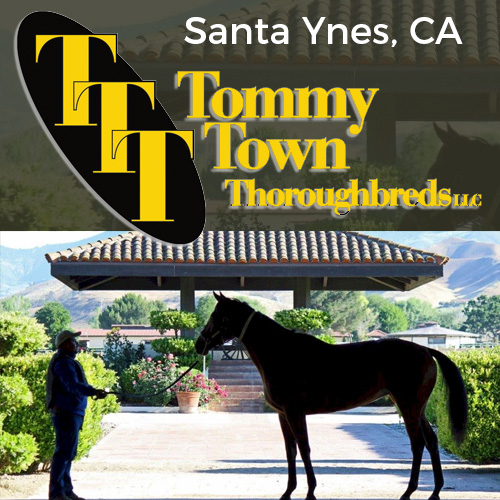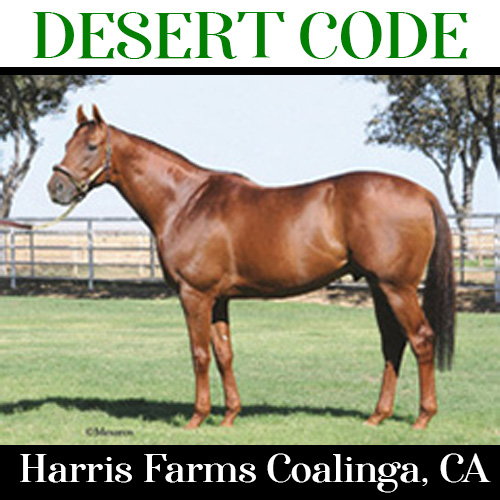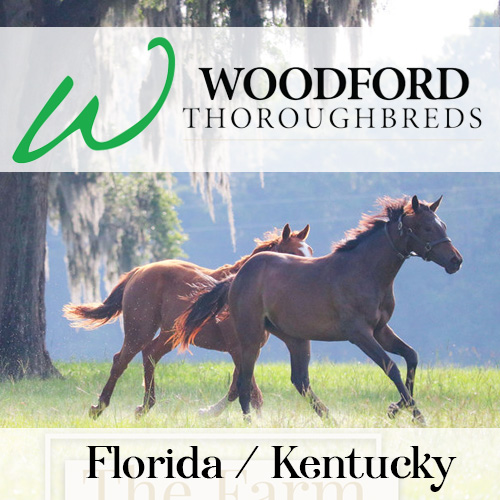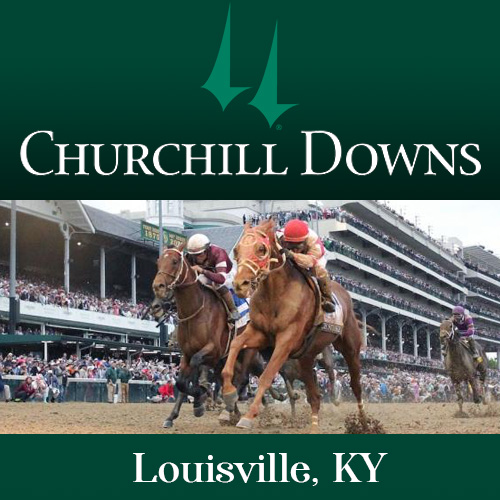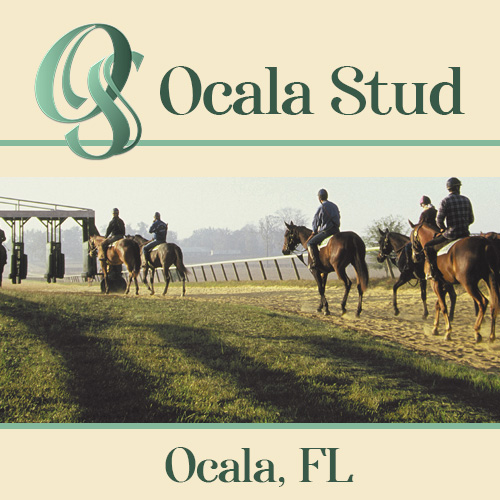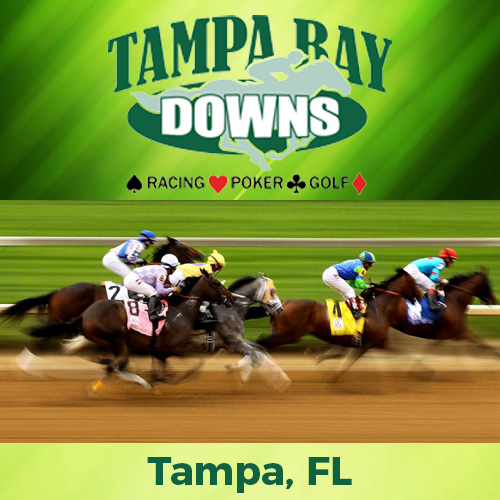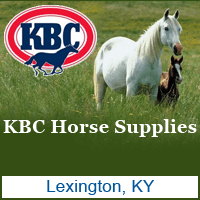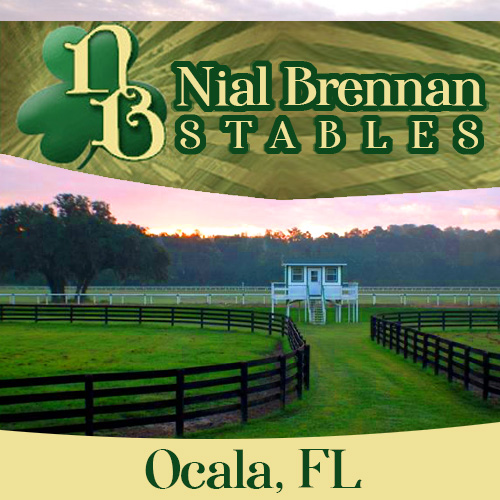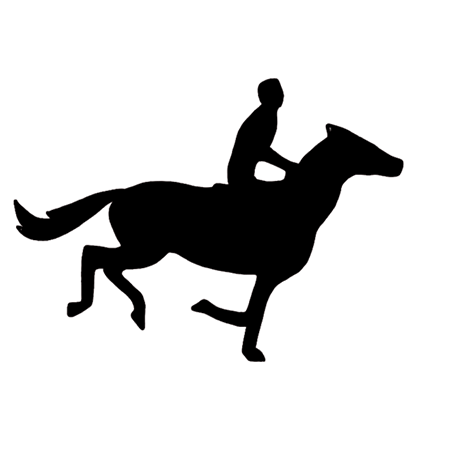The Great Races: The 1984 Breeders’ Cup Classic
By Kimberly French
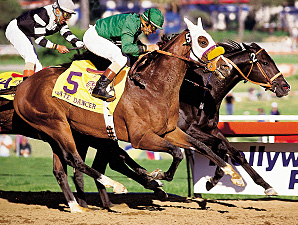 On Monday (October 26) morning, a small select group of admirers, family and media gathered around a freshly constructed plaque that was to be unveiled at Thoroughbred Park in downtown Lexington. Although a decade has passed since John R. Gaines passed, his imprint on the legacy and direction of Thoroughbred racing will forever remain. On a day that would commence the countdown to the 32nd edition of the Breeders’ Cup that would be hosted by Lexington for the very first time, it seemed the perfect tribute to the man responsible for the event’s existence.
On Monday (October 26) morning, a small select group of admirers, family and media gathered around a freshly constructed plaque that was to be unveiled at Thoroughbred Park in downtown Lexington. Although a decade has passed since John R. Gaines passed, his imprint on the legacy and direction of Thoroughbred racing will forever remain. On a day that would commence the countdown to the 32nd edition of the Breeders’ Cup that would be hosted by Lexington for the very first time, it seemed the perfect tribute to the man responsible for the event’s existence.
Gaines was a pet food magnate that suggested the sport needed to create a year-end championship event to cement divisional honors and to attract participants from all around the world. He proposed his concept in 1982 at a luncheon held during the Kentucky Derby festival week in neighboring Louisville. In Gaines’ opinion, this new event would only improve the sport and prove to be a boon for the entire industry. More than three decades later Gaines’ vision not only became reality, but was voted by a select panel of racing experts in 2006 as the sport’s most memorable moment of the last 100 years. The Breeders’ Cup has not only withstood the ravages of time, but has flourished in ways that could never have been imagined on that spring day in late April 1982.
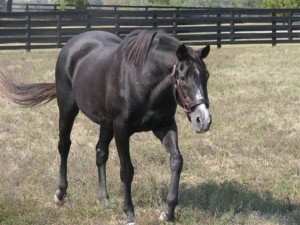 Oddly enough, the inaugural Breeders’ Cup Classic is also on many racing historians and turf writers’ lists as one of the most memorable of all time. Not because a 31-1 shot captured a tremendously large prize, but because its sheer excitement and behind the scenes drama set the stage for what the future would hold. Essentially it cemented the Breeders’ Cup as an event that would be permanent and monumental in how the sport would be perceived, would morph and evolve. Therefore, the 1984 Classic cemented Gaines’ idea and all the machinations to achieve its construction. Its significance and appeal makes this contest one for the ages.
Oddly enough, the inaugural Breeders’ Cup Classic is also on many racing historians and turf writers’ lists as one of the most memorable of all time. Not because a 31-1 shot captured a tremendously large prize, but because its sheer excitement and behind the scenes drama set the stage for what the future would hold. Essentially it cemented the Breeders’ Cup as an event that would be permanent and monumental in how the sport would be perceived, would morph and evolve. Therefore, the 1984 Classic cemented Gaines’ idea and all the machinations to achieve its construction. Its significance and appeal makes this contest one for the ages.
On November 11, 1984, the first Breeders’ Cup was presented at Hollywood Park. It had taken Gaines and his supporters, such as John Nerud, nearly two years to get the event off the ground. It was no simple task, as many involved in the industry perceived Gaines’ dream as folly. They felt it was a foolish notion with no substance and could never possibly succeed. Due to the untiring efforts of Gaines and his followers, the industry was brought to heel whether they fully believed in the Breeders’ Cup or not. On the day when the seven million dollar races finally were to be run, four of which determined the divisional honors, there was a decided majority that did not know what to expect or if the Breeders’ Cup would actually become a flop of epic proportions. After the intense three horse duel to the wire in the $3 million Breeders’ Cup Classic, people realized this event not only had merit, but purpose, and was here to stay.
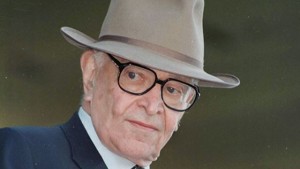 The 1984 Classic was the final career start for the outstanding Slew O’Gold. Most bettors felt the stallion would simply prance down the stretch to his sixth straight triumph for that year’s campaign and would be crowned Horse of the Year after completing this final requirement. But they could not have been more wrong. As more than 64,000 people stood waiting for Slew O’Gold to hit the line in front, they began to realize Wild Again at 31-1 was a force to be reckoned with.
The 1984 Classic was the final career start for the outstanding Slew O’Gold. Most bettors felt the stallion would simply prance down the stretch to his sixth straight triumph for that year’s campaign and would be crowned Horse of the Year after completing this final requirement. But they could not have been more wrong. As more than 64,000 people stood waiting for Slew O’Gold to hit the line in front, they began to realize Wild Again at 31-1 was a force to be reckoned with.
After putting away strong bids by Mugatea and the top 3-year-old Precisionist, who was a multiple champion during his illustrious career, Wild Again hit the top of the lane still with the lead. The stallion had been hard used during swift fractions, but showed no signs of spitting the bit or throwing in the towel. Slew O’Gold had bided his time just off the pace, without engaging in the speed duel in front. Within seconds, he was asked for his speed and drew alongside Wild Again, but shockingly enough did not blow right by him. As Slew O’Gold made his move and gained position, the hooded Gate Dancer was closing with a rush on the outside. The three horses nearly moved in unison 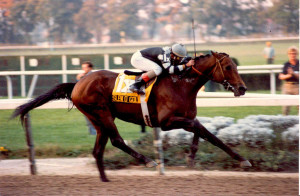 down the stretch with Slew O’Gold receiving the misfortune of being sandwiched in between his two rivals. As the wire approached, Wild Again seemed to moving in while Gate Dancer was lugging out, which was something he had been disqualified for in the Kentucky Derby where he was taken down from fourth to fifth.
down the stretch with Slew O’Gold receiving the misfortune of being sandwiched in between his two rivals. As the wire approached, Wild Again seemed to moving in while Gate Dancer was lugging out, which was something he had been disqualified for in the Kentucky Derby where he was taken down from fourth to fifth.
Wild Again crossed the finish line first, with Gate Dancer in second and Slew O’Gold in third. Less than a length separated all three horses and up flashed the inquiry sign. All tickets were to be held until the stewards conducted their inspection. After eight long, taxing minutes of scrutinizing the film, they concluded Gate Dancer had indeed impeded the progress of Slew O’Gold, but Wild Again remained the victor as he had committed no infraction. The official order of finish was Wild Again, Slew O’Gold and Gate Dancer.
Pete Pederson, the head steward at time, issued the reasoning behind the decision and even after he retired still had many people ask him how he and his colleagues could have made such a wrong choice. Slew O’Gold was bumped by both horses and should have been the winner. Pederson, however, never wavered from what the group determined. He claimed Wild Again never was a hindrance to Slew O’Gold’s chances and steadfastly defended the result on every occasion he was reminded of it.
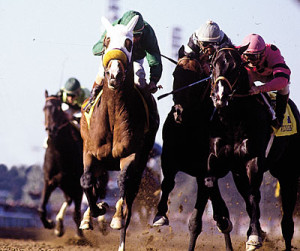 Although the race itself was certainly scintillating and a thrilling debut for the event, the history of how Wild Again even participated in that contest is even more intriguing, as he had just finished third in allowance company at Bay Meadows. He was hardly the caliber of horse that Slew O’Gold was and despite his connections fervently believing he belonged, they did not have the $300,000 plus supplemental fee to take that kind of risk of him.
Although the race itself was certainly scintillating and a thrilling debut for the event, the history of how Wild Again even participated in that contest is even more intriguing, as he had just finished third in allowance company at Bay Meadows. He was hardly the caliber of horse that Slew O’Gold was and despite his connections fervently believing he belonged, they did not have the $300,000 plus supplemental fee to take that kind of risk of him.
Owned by the Black Chip Stable of Bill Allen, Terry Beal and Ron Volkman, Wild Again was not nominated to the Breeders’ Cup. Allen, who was known for his penchant for taking chances, was not on board to take a shot at the Breeders’ Cup with his horse. A client with the prestigious Lossen Agency, which was the largest bloodstock organization of its kind in the nation, Allen was convinced to pony up the cash to enter Wild Again in the first edition of the Breeders’ Cup Classic by the agency’s owner, Dick Lossen.
After Lossen explained all Wild Again had to do was finish third for Allen to get his money back, he was mulling it over, but was truly pushed into action when Lossen borrowed the $120,000 early nomination fee and delivered it in person to the Breeders’ Cup office. With Lossen forcing his hand, Allen used one of his Blushing Groom mares in foal as collateral and borrowed the entire fee from the bank.
The rest as they say is history, for Wild Again proved he was no fluke and went on to become one of the most successful stallions in the world. The horse proved the Breeders’ Cup was truly an event to determine world champions.
Watch the 1984 Breeders Cup Classic Here
